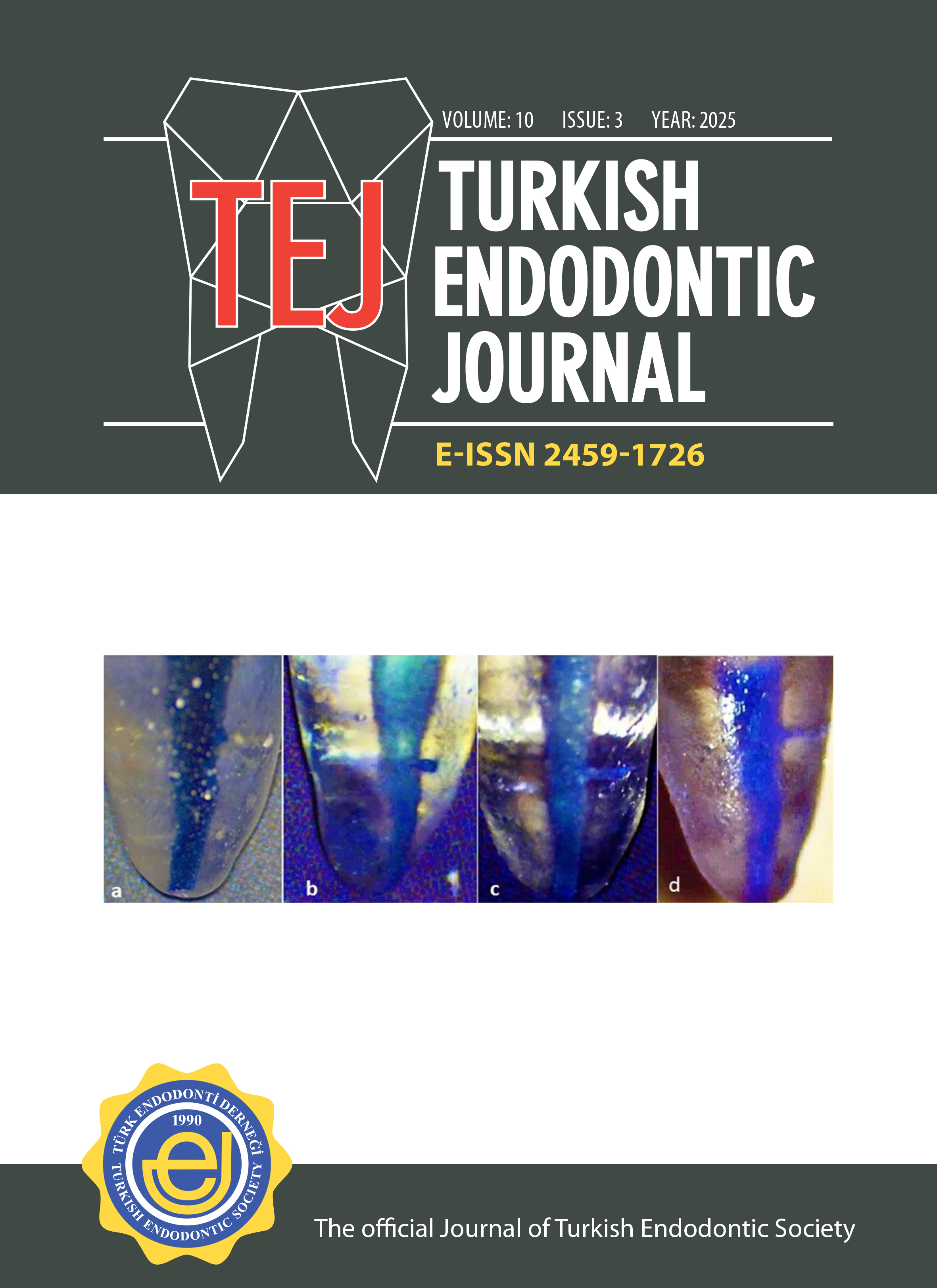Effect of decreased temperature on the tissue dissolution ability of sodium hypochlorite: An in vitro study
Ali Rıza Arslan, Burcu Pirimoğlu, Cangül KeskinDepartment of Endodontics, Ondokuz Mayıs University Faculty of Dentistry, Samsun, TürkiyePurpose: The present in vitro study aimed to compare the tissue dissolution ability of a 5% sodium hypochlorite solution at 3 different temperatures.
Methods: Thirty standardized fragments were prepared from bovine muscle tissue and randomly divided into 3 experimental groups (n = 10) according to the temperature of the sodium hypochlorite. The tissue was immersed in a 1.5-mL test tube containing 20 mL of sodium hypochlorite at the specific temperature and stored for 15 min. The solution was agitated with an ultrasonic tip working for 1 min. Then the solution was filtered, and the tissue sample was dried. The weight loss of the tissue was measured as dissolved tissue by the sodium hypochlorite. A one-way analysis of variance was used to compare the mean dissolved tissue weight between groups (p < 0.05).
Results: The highest dissolution values were found in the 60°C sodium hypochlorite group, achieving significantly greater mass loss (p < 0.05), while no significant difference was found between the solutions applied at 20°C and 2.5°C (p > 0.05).
Conclusion: This in vitro study found that the application of sodium hypochlorite by cooling for cryo-therapy did not alter its capacity for dissolving organic tissue compared to application at room temperature.
Keywords: Activation, cold, heat, intracanal cryotherapy, NaOCl, room temperature.
Manuscript Language: English



















